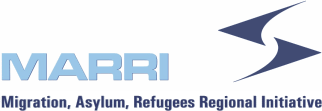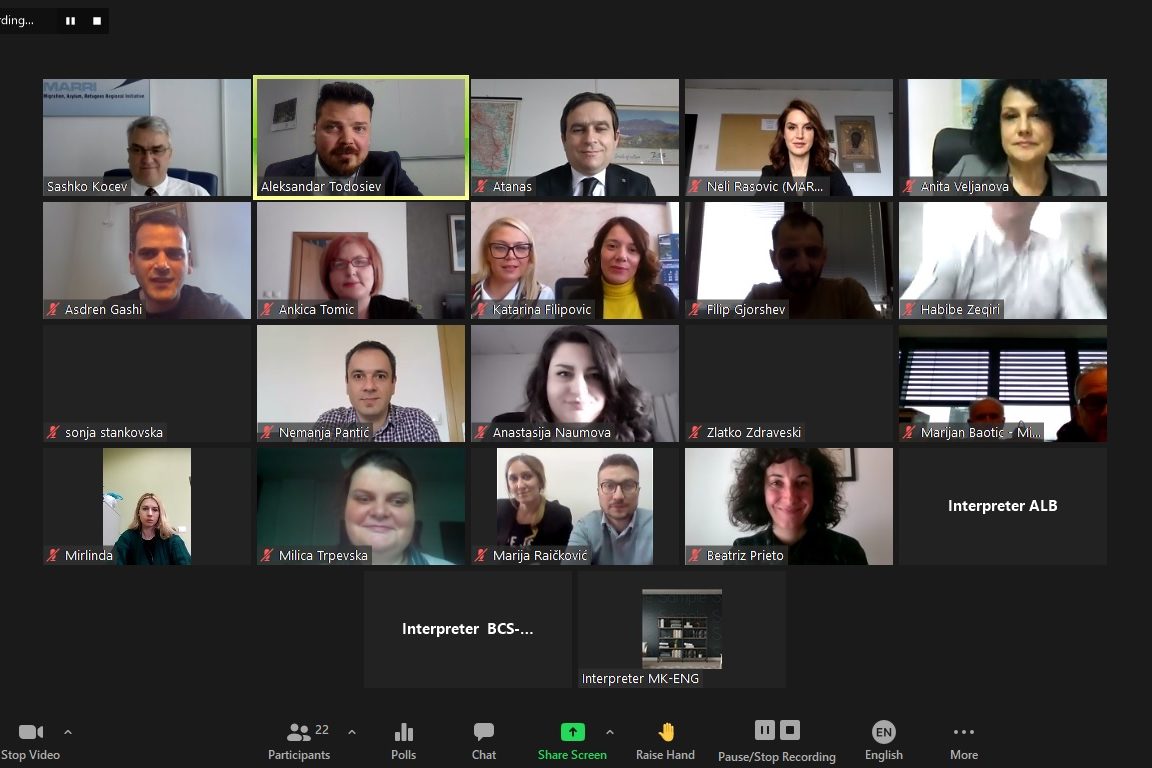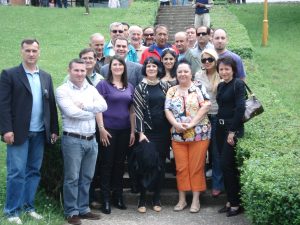 The first meeting of the Heads of the Asylum Departments of MARRI Participants in organization of MARRI RC, took place on 25 May 2005 in Skopje. During the meeting, the participants recognized the need for establishment of a mechanism for gathering and exchange of information and agreed on methods, frequency and structure of information to be shared, as a precondition for further action in order to:
The first meeting of the Heads of the Asylum Departments of MARRI Participants in organization of MARRI RC, took place on 25 May 2005 in Skopje. During the meeting, the participants recognized the need for establishment of a mechanism for gathering and exchange of information and agreed on methods, frequency and structure of information to be shared, as a precondition for further action in order to:
- identify fields for future activities carried out by the MARRI Regional Centre on national and regional level;
- avoid duplication and overlapping with other activities carried out by other programs;
- extend cooperation in this field among five MARRI Member States;
- use the statistics for early warning and,
- establish a common policy towards new European trends in this field (common European asylum system).
The Study Visit/Workshop “Best practices in managing reception/detention centers for asylum seekers” was organized in June 2009 in Land of Brandenburg, Germany. As a conclusion, the participants identified the need of development of network for cooperation in the field of reception of asylum seekers, realized through regular annual meetings where Heads of Reception Centers for Asylum Seekers and MOI Asylum Units exchanged opinions, good practices, identified gaps and possible solutions in order to step up capacities and efficiency of national reception systems.
On 17- 19 November 2009, the Launching Meeting/Workshop of the MARRI Member States’ Heads of Reception Centres for Asylum Seekers and MOI Asylum Units on topic “Best practices in reception asylum seekers by family and gender categories,” was organized by the Reception Centre for Asylum Seekers of the Republic of Macedonia, in partnership with MARRI Regional Centre, in Skopje and Ohrid, Macedonia. The Launching Meeting/Workshop was a follow up activity of the Study Visit/Workshop “Best practices in managing reception/detention centers for asylum seekers” held in June 2009 in Land of Brandenburg, Germany. Accordingly, the objective of the Launching Meeting/Workshop was to commence establishment of network for cooperation among Heads of Reception Centers for Asylum Seekers and MOI Asylum Units in the format of Directorium as well as to exchange the best practices, identify gaps and possible solutions for reception asylum seekers by family and gender categories (male, female, unaccompanied minors, etc.).
On 23-24 June 2010, the Commissariat for Refugees of the Republic of Serbia in partnership with MARRI Regional Centre organized the Meeting of the Network for cooperation among MARRI Member States’ national institutions in the field of Asylum on topic “Challenges in 2010” which took place on Zlatibor and Banja Koviljaca, Republic of Serbia.
This meeting was realized through two groups of activities:
- meeting with municipal trustees and representatives of national and international community in Zlatibor (organized by the Commissariat for Refugees of the Republic of Serbia and Danish Refugees Council “Further Support to Refugees and IDPs in Serbia” Project, funded by the European Union) and,
- study visit to the Reception Centre for Asylum Seekers in Banja Koviljaca.
MARRI Member States’ Asylum Network Meeting organized on 7 April 2011 in Tirana, gathered asylum experts from Albania, Bosnia and Herzegovina, Macedonia, Montenegro and Serbia, as well as experts from the Police Cooperation Convention SEE Secretariat in Ljubljana, giving valuable contribution to the meeting.
The objectives of the event were:
- further discussion and harmonization of the “Draft-Memorandum of Understanding among the MARRI Member States on Exchange and Provision of Data concerning Asylum Seekers”;
- further strengthening the Asylum Network and exchange of experience in the region through a study visit to the Reception Centre for Asylum Seekers in Tirana.
The Fifth Meeting of the MARRI Asylum Network took place on 23 November 2011 in Podgorica. MARRI Regional Centre, under the Presidency-in-Office of the Republic of Serbia organized the meeting, kindly supported by the Ministry of Interior and Bureau of the Care of Refugees of Montenegro. The Meeting was a follow up of the activities from the previous Meetings of MARRI Asylum Network for cooperation among MARRI Member States` national institutions in the field of Asylum held in Branderburg, Ohrid, Zlatibor and Tirana.
Accordingly, the first objective of the meeting was to discuss the next steps regarding the Memorandum of Understanding among Member States of MARRI on Exchange and Provision of Data concerning Asylum Seekers. Second, to present the state of play on the national level in Asylum Issues and to explore modalities for cooperation and strengthening the Network.
On 17 April 2018, MARRI Heads of Asylum Departments meeting gathered Heads/Senior advisors in MARRI Participants’ Asylum Departments as well as caseworkers experienced in conducting asylum interviews.
The meeting which was organized by MARRI RC, reflected one of the priorities of the Albanian Presidency-in-Office – boosting regional cooperation in the area of asylum. The main topic of discussion was operationalisation of the “Protocol on the Use of Joint Interpretation Pool in the Area of Migration and Asylum” which was signed by all six MARRI Participants. The organization of the meeting was supported by International Organisation for Migration (IOM) under the above mentioned regional IPA II project.
The Regional Conference “Enhanced collaboration within Western Balkans in providing international protection and respecting the human rights of refugees” was organized by MARRI RC with support of UNHCR Skopje on 29 – 31 October 2019, in Ohrid. The working sessions of the conference focused on analysing the current state of play with regards to the asylum procedures and border management in the MARRI Participants, and in particular, the registration and profiling of migrants and asylum seekers by the first contact officers; harmonisation of the Participants’ legislation with Asylum Procedure Directive 2013/32/EU and Reception Directive 2013/33/EU (Procedures, Guarantees and Alternatives to Detention); new developments related to migration movements & modi operandi for irregular border crossings in the region as well as the intergovernmental cooperation and best practices in the area of Integrated Border Management.
On 24 March 2021, the first online Meeting of the MARRI Heads of Asylum Departments Network took place via Zoom. The main topic on the Agenda was the EASO-MARRI pilot work-plan concerning an establishment of a regional hub for asylum trainings (a sub-activity of the IPA II regional project), to be facilitated by MARRI RC under the EASO’s expertise. In this regard, the two attending EASO representatives, the Project Coordinator at the Third Country Support Sector Beatriz Prieto and the EASO Researcher and Trainer Stefano Torelli provided a comprehensive overview of the evolving process, concluding with the next steps towards a sustainable solution.
12-14 April 2022 – Regional Back-to-Back Meeting Asylum and Migration Management
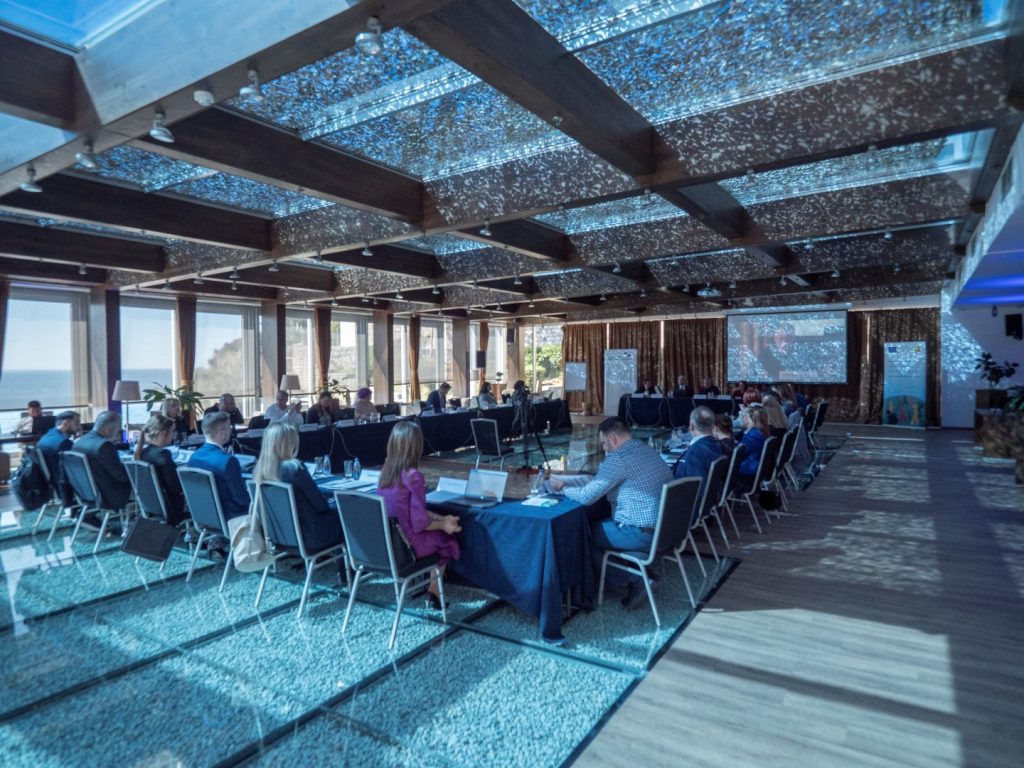
The engaging discussions focused on the capacities of MARRI authorities to deal with possible mass migration flows, procedures of registration of migrants and existing systems for reception of asylum seekers in the MARRI Participants, implementation of the asylum procedure and challenges of dealing with vulnerable categories of migrants. The cooperation between the competent migration authorities, including the obstacles and possible solutions, were also touched upon while the interventions by the international partners further enriched the discussions.
This event was supported by the Austrian NGO Hilfswerk International – one of the implementers of a project financed by the Asylum, Migration and Integration Fund (AMIF) through the Austrian Federal Ministry of Interior (BMI).
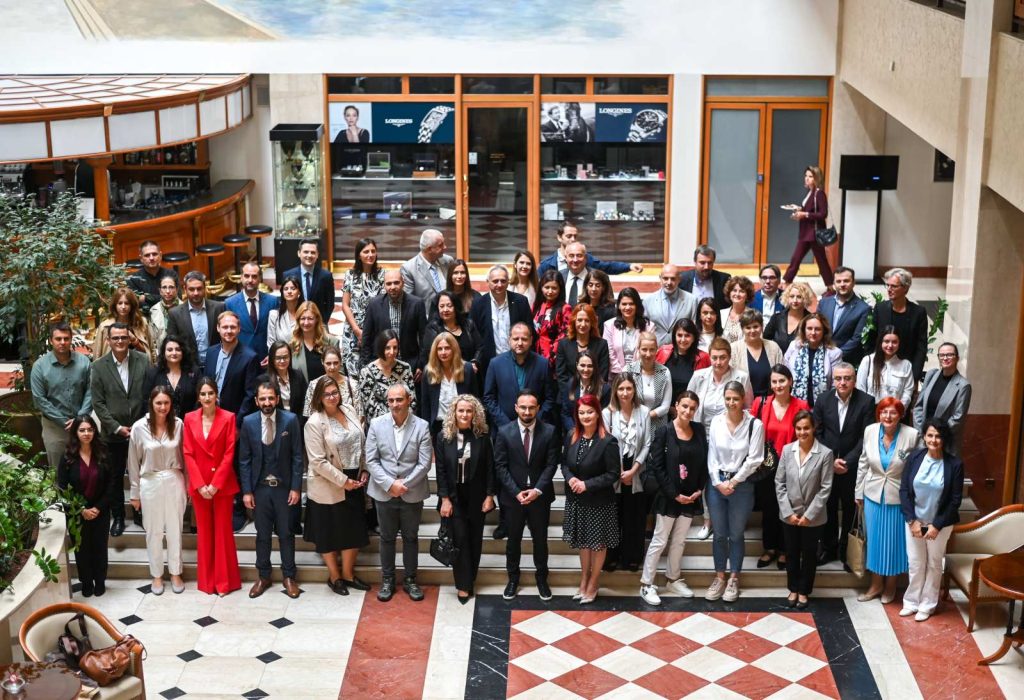
In response to the growing demand for a foreign workforce in the Western Balkans and recent legal reforms facilitating the employment of foreigners, MARRI RC in collaboration with GIZ North Macedonia,organised the Regional Conference “Protection and Economic Prospects: Fostering Labour Participation of Asylum Seekers in the Western Balkans” on 25 September in Skopje to shed light on the challenges and opportunities faced by asylum seekers already in the region.
The conference brought together key stakeholders and experts from both the Western Balkans and EU member states to discuss the potential benefits and challenges in improving asylum seekers’ access to the labour market, with a particular focus on Bosnia and Herzegovina and Serbia. The participants examined the current state of the labour market, the need for further legal reforms, and shared best practices from the EU and the region to enhance labour market integration efforts.
The foundation for the discussions was the analysis “Economic Aspects and Opportunities in Hosting People on the Move in Bosnia and Herzegovina and Serbia.” This analysis was conducted and presented by a team of experts, including Dr. Isabel Ruiz, GIZ Expert/Professor, University of Oxford; Dr. Ivana Krstic, GIZ Expert/Professor, University of Belgrade; and Dr. Nermin Oruc, GIZ Expert/Researcher, Centre for Development Evaluation and Social Science Research, Bosnia and Hercegovina.
In addition to the two panel sessions where experts and representatives from MARRI administrations, academia, international organizations, and civil society exchanged views on the topic, the participants also had the opportunity to learn about EU best practices. These were presented by Geert Daems from the Federal Agency for the Reception of Asylum Seekers (Fedasil) in Belgium.
All thematic sessions of the conference were moderated by Dr. Guido Tintori, Economic Affairs Officer at the Organization for Security and Co-operation in Europe (OSCE) Secretariat.
The conference is part of the project “Fostering Economic Opportunities of MARRI Participants by Enhancing the International Protection System,” a component of a broader GIZ initiative on the social participation of migrants and host populations in the Western Balkans. This project is commissioned by the Federal Ministry for Economic Cooperation and Development (BMZ) under its Special Initiative on Forced Displacement. Through this project, MARRI aims to strengthen the capacities of government institutions and improve the conditions for the social and labour participation of asylum seekers in the six MARRI Participants.
11 December 2024 – MARRI Asylum Network Meeting in Skopje
During the meeting, the participants presented updates on the state of play in asylum systems across the region. A highlight of the event was a presentation on the New EU Pact on Migration and Asylum and its implications for the Western Balkans, delivered by Aurélien Juliard, International Relations Officer at DG Home. The subsequent discussion provided an opportunity for the participants to explore practical approaches for aligning with EU standards while addressing regional challenges.
The meeting was organized under the MARRI Presidency-in-Office by the Republic of Albania with support of GIZ, in the framework of the project “Fostering Economic Opportunities of MARRI Participants by Enhancing the International Protection System.”
